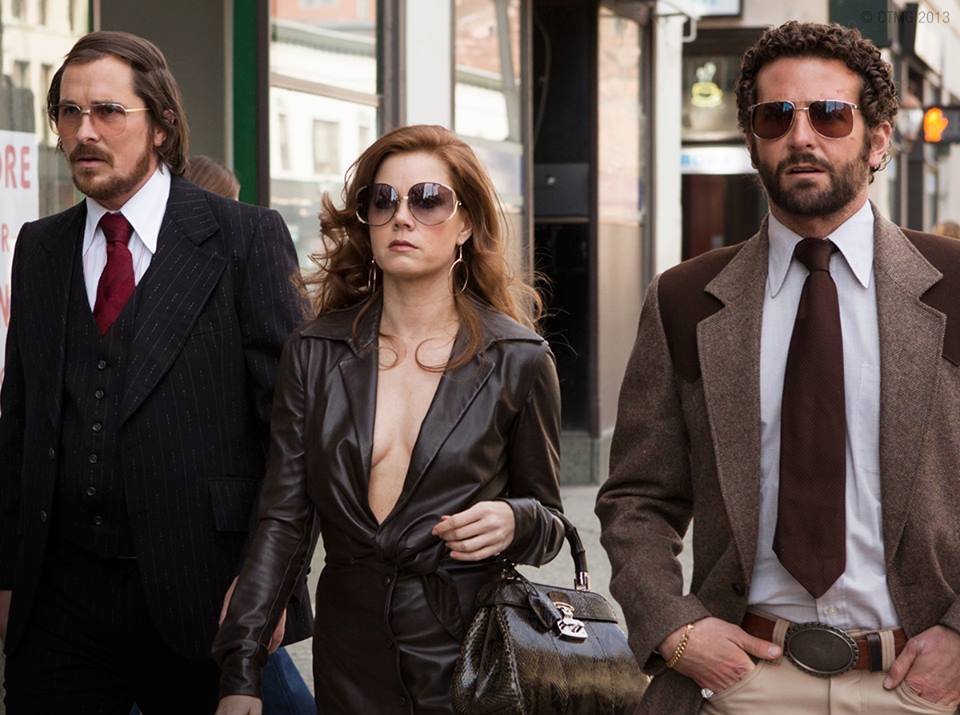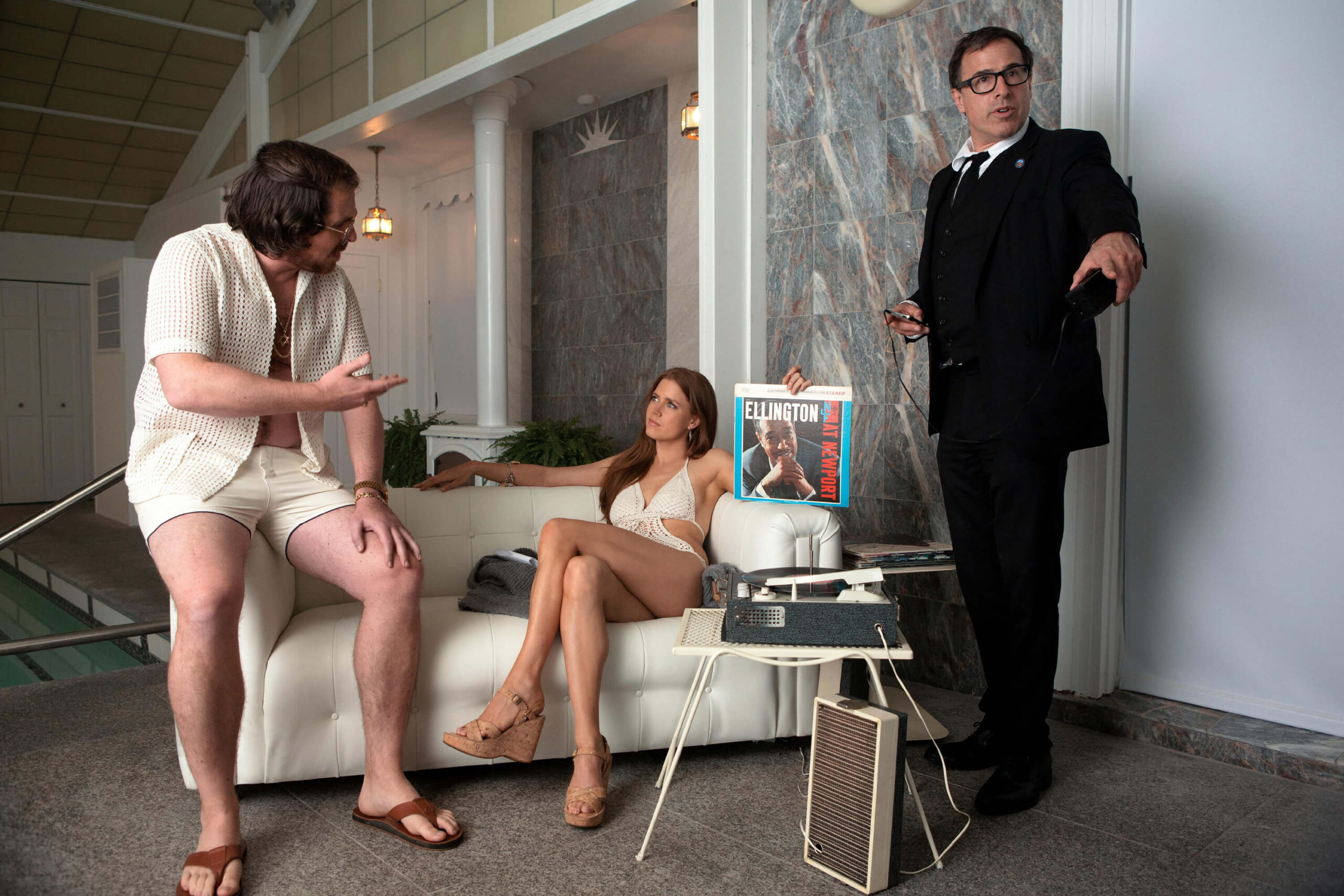THE ESSAY BELOW CONTAINS SPOILERS FOR SILVER LINING PLAYBOOK.
BIOGRAPHY:
David O. Russell was born on August 20th 1958 in Manhattan but raised in Larchmont, New York into a middle-class household. During his teens, Russell discovered his love for film with classics such as Taxi Driver, Chinatown, and Shampoo and eventually started filming for a project at the age of 13.
After graduating from Amherst College, Russell traveled to Nicaragua and began teaching in a literacy program. He also worked manual labor jobs in the area which convinced him to document slums and bad housing conditions which later became a documentary about Lewiston, Maine. Ultimately, this led to a job as a production assistant on a PBS series called Smithsonian World.
In 1987 Russell wrote, produced and directed Bingo Inferno: A Parody on American Obsessions, which followed a bingo-obsessed mother. Two years later, he created another short film titled Hairway to the Stars starring Bette Davis and William Hickey. Both short films premiered at Sundance Film Festival.
Since then, Russell has gone on to bigger successes at the worldwide box office but most notably the Academy Awards (receiving over 25 nominations and multiple wins). These larger films include The Fighter, Silver Linings Playbook, American Hustle and Joy, all starring well-known and skilled actors who portrayed their characters with elegant charm. This resulted in recognition from the Academy and critics worldwide.
FILMOGRAPHY:
Bingo Inferno: A Parody on American Obsessions (Short) – 1987
Hairway to the Stars (Short) – 1989
Spanking the Monkey – 1994
Flirting with Disaster – 1996
Three Kings – 1999
I Heart Huckabees – 2004
Soldiers Pay (Documentary Short) – 2004
The Fighter – 2010
Silver Linings Playbook – 2012
American Hustle – 2013
Accidental Love – 2015
Joy – 2015
THEMES: NEIGHBOURHOOD, FAMILY, AND FRIENDSHIP
As mentioned earlier, Russell spent a portion of his life documenting working-class families during his time in Nicaragua. Clearly the setting made an impact on Russell as he recalled similar locations in further movies resulting in a more effective atmosphere. This could have possibly contributed to his many successes as a filmmaker because the realistic attributes contain believable almost ‘pure’ visions of neighborhoods and even the personalities residing there. Russell’s further themes include family and friendship easily recognizable in his most recent ventures Joy and American Hustle.

Silver Linings Playbook was partially shot in Philadelphia but more specifically, the working-class neighborhoods. Russell’s camera was able to capture authentic local color, bringing the atmosphere and the eccentric details to the foreground visibly and verbally for the audience to indulge. During a screening in Philadelphia, Russell recalls the residents and homeowners cheering at recognizable set pieces. They especially connected to Robert De Niro’s character and how he configures his TV remotes just inches away from the recliner and how he wears an oversized Philadelphia Eagles shirt so those in the know can appreciate the nifty accuracies. For me personally, the performances capture ‘true’ characters that I would gladly hang out with and maybe share a drink or two.

The success of The Fighter caused Russell to revise De Niro’s Silver Linings Playbook character from an anger-infused parent to a sympathetic and relatable character that carried De Niro to his best reviews in decades. But I prefer the crumbling counterpart when Russell tackles friendship. In American Hustle, the protagonists are so different that they don’t get along and slowly destroy the heist. For example, the opening scene is a beautifully executed shot/reverse shot between Bradley Cooper and Christian Bale’s characters arguing to the point where Cooper ‘re-styles’ Bales’ hair. With occasional snippets of Amy Adams trying to neutralize the situation, the audience is already discovering the conflict between them which establishes the abnormal partnership in hand, while laying out the upcoming narrative.

Similarly, Joy follows Joy Mangano, a business woman/entrepreneur known for inventions like the Miracle Mop, as she cleans up her life (pun intended) in hopes to become a better person. Here we have a strong presence of family acting as the moral support, shaking the narrative for our protagonist; De Niro blurs this line by portraying a firm but loving father for our hero. Silver Linings Playbook challenges a little bit of everything family wise, but I believe the message is to embrace the mess of an extended family. This can be seen as Pat (Bradley Cooper) and Tiffany (Jennifer Lawrence) do end up tying the knot and experiencing both sides of heritage. Therefore from the characters’ desperate straits, the right amount of comedy is found.
THEME: REAL PROBLEMS
Russell writes and directs as if you are spying on other people’s lives reflecting the realness and relationships of these people. The effect of this allows him to portray any issues without sugarcoating them because the audience expect a deeper meaning from his movies.

The mundane visuals of The Fighter construct an everyday aesthetic to the movie, highlighting the realistic aspect it will entail. At one point, Russell inserts a film within a film (filmception) – a HBO documentary crew following the brothers to secretly expose Dicky’s (Christian Bale) drug addiction, again exploring underlying themes. Dicky himself, a washed-up ex-boxing legend, is a layered character still conflicted with being a crack addict but attempting to act as Micky’s (Mark Wahlberg) trainer. Russell is able to capture the struggle that some viewers will relate to, assisting the realistic nature of the narrative.

Silver Linings Playbook follows the character of Pat Solitano, portrayed by Bradley Cooper, who struggles to cope with bipolar disorder which leads to his wife leaving him; Pat attempts to rekindle the romance throughout the narrative but fails. Matthew Russell (David O’ Russell’s son) has fought a lifelong battle with bipolar disorder so the story was strongly influenced by the director’s own challenges in managing his son’s life and helping him cope. By including the mental illness, Russell has received “outpouring support since making his families own ordeal public,” which he stated was the most rewarding part of the film’s success. The blending of humor and intense dramatic moments ensured the audience felt connected to the characters on-screen. “Life is sad and funny – that’s why it works,” he said.
TRADEMARKS
- Casting choices (Amy Adams, Christian Bale, Bradley Cooper, Robert De Niro, Jennifer Lawrence, Mark Wahlberg)
- Serious subjects being mixed with comedy and emotional intensity to reflect the ‘realness’ of the characters and issues they are facing
- Showcases affinity for classic rock – especially Led Zeppelin
- Multiple conflicts (arguments) between multiple characters
- Long takes to create humour, convey insanity or create emotional connections to the characters
- Lighting a 360 degree environment so the actors can move around which keeps them on their toes
- Strong-minded and independent characters from both genders
- Increased camera movement using Steadicam rigs that render movement as smooth as tracking shots
INFLUENCES
While traveling to poorer parts of the world, Russell was inspired by slums to create a documentary based on his time spent there. Some might say that this was the starting point for his interest in films and documenting deeper issues about society. However, Russell owes a great deal of his influence and motivation to his friends and family who helped him carve out much loved and hugely successful films.
Great Expectations [1946] – This David Lean adaptation of Charles Dickens’ classic novel follows the orphan Pip as he dreams of becoming a gentleman. Reunited with his childhood patron and first love, he discovers that she has gone mad from having been left at the altar. Russell recalls the effect that Great Expectations had on him as a child and the way he saw the world, saying “real world, not the virtual world.” It was through its vastness and complexity that he found endearment. From then on, Russell explored deeper and possibly more controversial topics that lead him to greater recognition.

Hobson’s Choice [1954] – Again, another David Lean motion picture that affected Russell as a child. Russell calls this “Lean’s underappreciated gem.” Russell mainly creates films within the drama/comedy genre and this was the inspiration behind it. The merge between the two really stood out for him, urging him to replicate Lean’s techniques for a film of his own. As said earlier, Russell adapts long takes so the audience establish a virtual connection to the characters on-screen. Impeccable performances and sharp direction help contribute to this which is why Russell sticks with recurring actors/actresses; because they are reliable for a high quality performance.

Jennifer Lawrence – Lawrence is one of Russell’s closest friends and colleagues and is wholly reliable for a stunning performance reflecting positively on his films. In a recent interview with Indiewire, Russell revealed that the influence behind Joy was decided by Lawrence and himself cooperatively. He wanted to create a film that reflects the maturity Lawrence has developed over the time period they have worked together. Russell watched her purchase and move into her first house and conduct herself in a mature fashion convincing him to pursue the project. He states, “In a way, it is the most mature film that she’s done.”

STARTING POINTS
The themes and topics that Russell deals with can often be extremely heavy and shocking, especially for newcomers, but can be rewarded with a unique storytelling experience. That being said, anyone unfamiliar with his filmography should begin with a mainstream film to ease them into Russell’s work. For me, Silver Linings Playbook is easy to watch and with a stellar, recognizable cast, but not heavy enough to off put rookies. While still dealing with problematic themes, American Hustle or Joy are perfect as secondary starting points because they aren’t as publically noticed and have more complex plotlines – each establishing Russell’s unique style for the audience to enjoy.
DAVID O’ RUSSELL
Bagging over 25 Oscar nominations for his movies, David O’ Russell is an extremely talented director, producer and writer, already marking his name on planet Earth. It is difficult to fault his almost perfect filmography as his sheer quality outstandingly blinds us as an audience. The effortless filmmaking is a must watch for all moviegoers.

LINKS
FILMOGRAPHY
BINGO INFERNO: A PARODY ON AMERICAN OBSESSIONS - HAIRWAY TO THE STARS - SPANKING THE MONKEY - FLIRTING WITH DISASTER - THREE KINGS - I HEART HUCKABEES – SOLDIERS PAY - THE FIGHTER - SILVER LININGS PLAYBOOK - AMERICAN HUSTLE - ACCIDENTAL LOVE - JOY
INTERVIEWS AND SOURCES